Gareth Wyn Jones – A walk in their Wellies blog

As part of our campaign to support British farming, we created this blog to provide farmers with a platform to share their stories and experiences, offering insights beyond what you see on their Instagram accounts. Read below to take a walk in Gareth’s (@garethwynjones1) wellies, a mainly sheep farmer from Llanfairfechan…
1. Can you tell us about the history of your farm and how you got started in farming?
The farm has been in the family for over 375 years since records began. I was farming as soon as I could walk. I left school at 16 and went to Glynllifon, an agricultural college for 2 years and from then on worked for the family business, O.Jones and Sons.
2. What led you to decide to farm the animals you have?
We live on a hill farm and so it makes sense that we have mostly sheep on our farm. We have grazing rights for 4000 sheep on the Carneddau mountains which is 27,oo acres. We farm the old-fashioned way of “hafod a’r hendre”‘using the mountain for 6 months of the year in the summer when the flora and fauna is in plenty and then use the lowlands during the winter. It’s a regenerative system that has worked for hundreds of years without raping a pillaging the land. That’s why we’ve been able to survive here for 375 years by looking after our soil and land.
3. What are the key qualities needed to do your job?
You’ve got to be dedicated, hardworking and love what you do to look after our stock and land; that comes first and foremost in our everyday life.
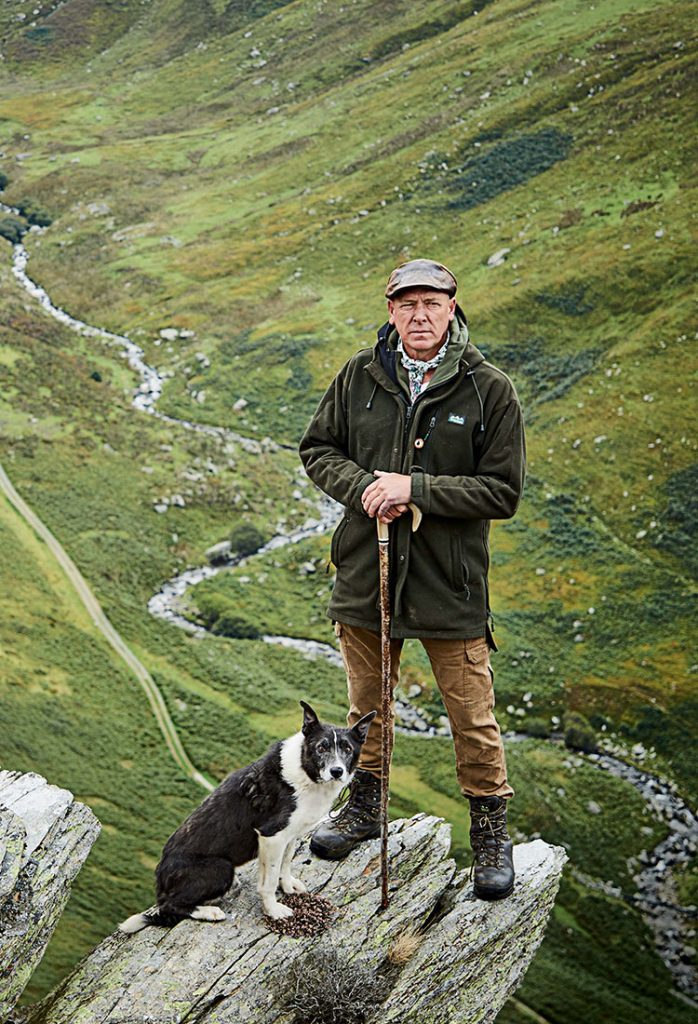
4. How did you train for and become competent at this role?
I was farming as soon as I could walk. You soon become a fast walker trying to keep up with your father and family members. You also become very fit, especially when you live on a hill farm. Before there were quad bikes we would gather the mountain on foot or horseback, so you soon became very fit physically. I learnt a great deal from my father, but also from his three brothers who worked together daily for the family business. I learnt something different from each one; they had their specialities within farming. They were a huge influence on my farming journey.
5. What life skills do you believe your children gain from growing up on a farm?
All my children have learnt a lot from farming. I think most farming children are very practical. They learn from a young age to open and close gates, where to stand when moving livestock, pulling lambs, walling, fencing; they learn a lot of common sense and skills. Knowledge is passed on to them from their fathers, mothers, and grandparents- some precious knowledge that has been passed on verbally e.g., ancient place names on the mountain never written down in books or maps or herbal remedies for sick animals.
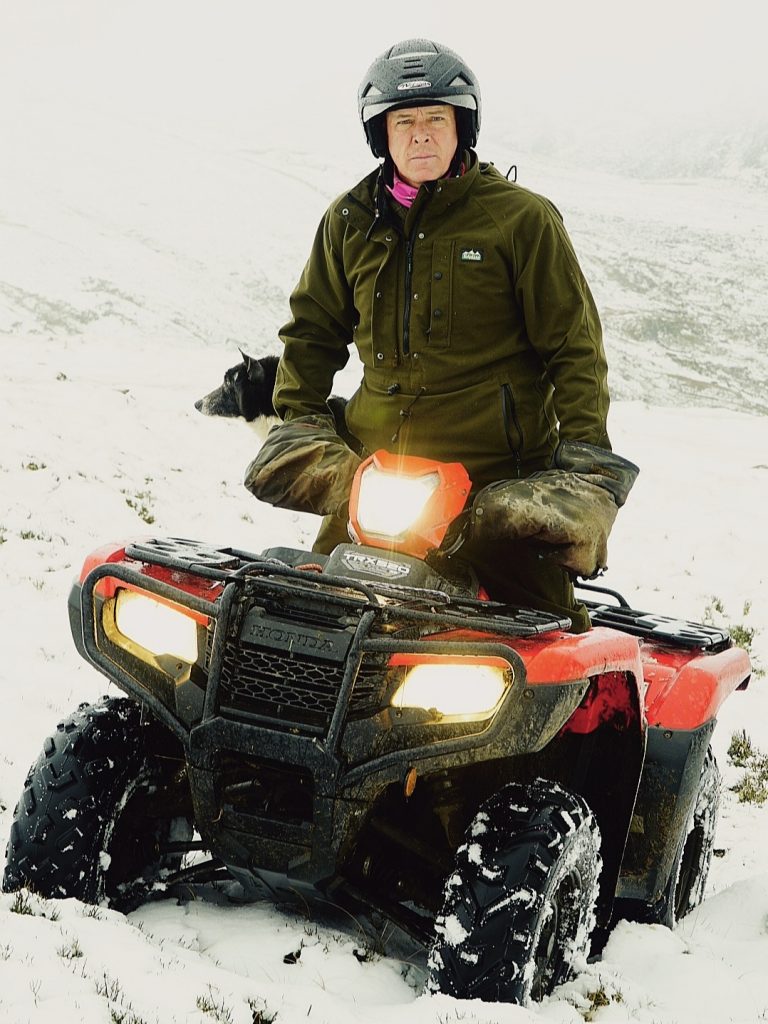
6. What are some of the unique challenges and rewards of raising children on a farm?
The rewards is that these children get exercise and because they are mostly outdoors in the fresh air they have a positive outlook on life. They learn to problem solve and thus become more confident and so feel useful, valued, and connected to animals, wildlife, and nature. By feeling valued by their parents and helping they tend to be more considerate, thoughtful, and happier children.
7. Can you share your experience of being featured on a farming-related TV show?
I have been part of many farming related shows. When we filmed “Family Farm” on our farm it was really hard work We took three families on a journey to experience life on a farm. They all lived in yurts, had a sheepdog to learn how to herd sheep, pigs and hens to look after. We really got to know the families really well and are still good friends with them all. They were immersed into farming life and got to see the trials and tribulations of everyday farming life. I realised that all people are different, some really understood that livestock had to be slaughtered to go into the food chain, others were upset. I learnt that some people are more sensitive and that is a lovely trait, and there’s nothing wrong in that, but reality is, we have to feed a nation affordably and nutritionally and so we cannot keep all the livestock. All the families loved the process of looking after the hens, pigs, milking the goat and eating fresh nutritional food. The best part was seeing all the children getting along so well with our children, playing in the fields and trees until the sun went down. Total freedom.
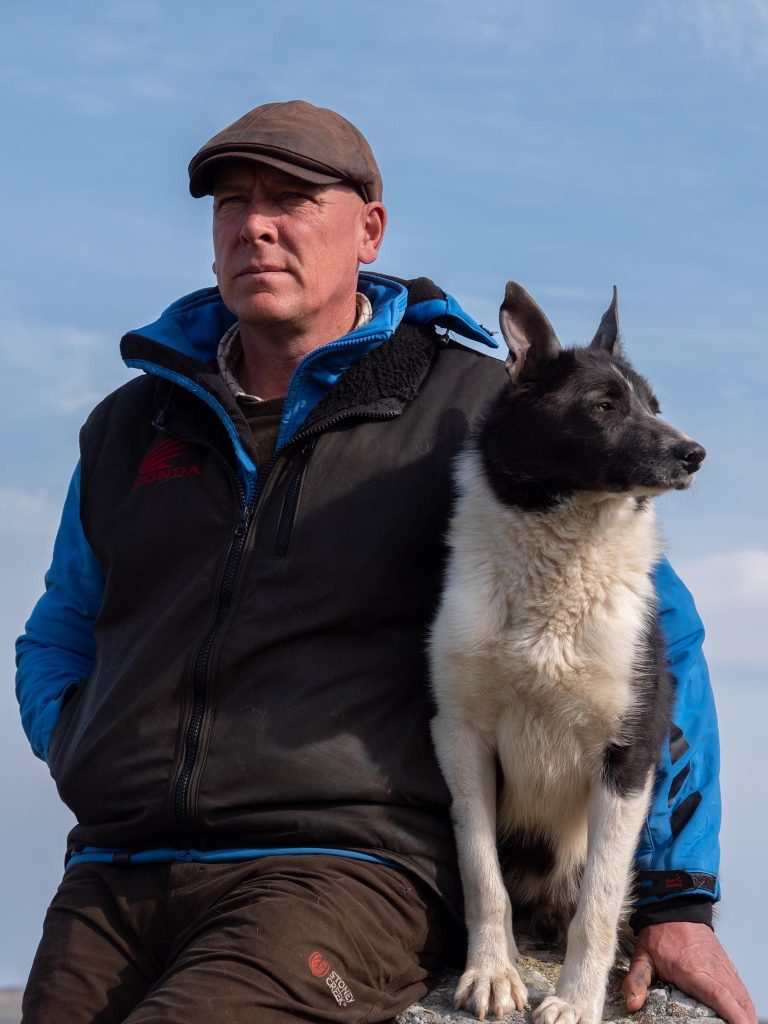
8. What was your favourite part of the TV project experience?
My favourite part was seeing the families getting totally immersed into the whole experience and appreciating how much work it took to bring food onto the table. The fact that they were so inquisitive and really cared for the animals some of the families even bought their own chickens and changed their way of buying food i.e. buying from local butchers etc. After the show.
9. Briefly describe a typical working day (e.g. what time do you get up, have breakfast, round the sheep up etc).
I usually get up about 5- 5.30 in the morning. I have a cup of coffee watch the news and do bits on my social media. Then I go out, clean the dog kennels; in m the summer take the dogs out up to the mountain to heft the sheep. I have dinner at home with my son and wife and then I’m out again checking on the stock, lifting walls, paperwork etc. I have supper at about 5.30p.m. have some coffee and them out again, train the dogs and usually finish around 8p.m.
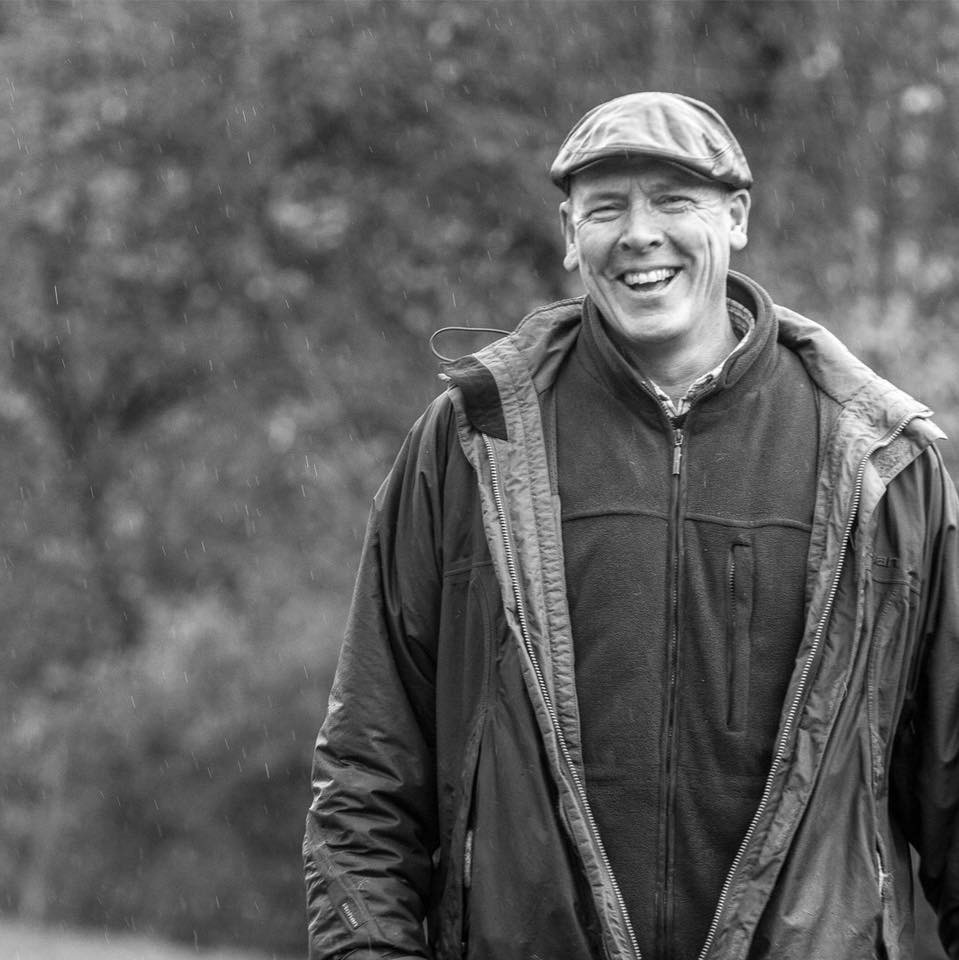
10. What’s great about being a farmer?
It’s great to work with nature. I’m the first to see the swallows the first to hear the cuckoo; I see the first leaves. Spring is my favourite time of year; everything comes into blossom. Lambing is a special time of the year.
11. What are some of the biggest challenges you face as a farmer in the UK today?
The biggest challenges facing us as farmers today is government policies and legislations and pressures from supermarkets. Welsh government want all farms to give up 20% of their land, 10% to grow trees and 10% to habitat. Some farms cannot afford to do this. We are not only giving up 20% of food production making food scarcer, but we are de-valuing farmland. Trees don’t sequence carbon until 10 years into their life span. If you are grazing land then grazing is already part of the carbon cycle, sequencing carbon in into the soil as part of the whole carbon cycle. Welsh government should be planting seaweed in the sea (which sequencers more carbon than trees) if they want to reach their global carbon reducing targets.
Supermarkets have too much power and are squeezing profits from farmers to add to their enormous profits set in offshore accounts. Tesco made 2.4 billion pretax profit in 23/24 and Tesco’s boss pay increased from £4.4 million to £9.93million in February 2024.
Then there are schemes incentives to put solar panels on prime land! That land would be better used for producing meat and growing crops all sequencing carbon.
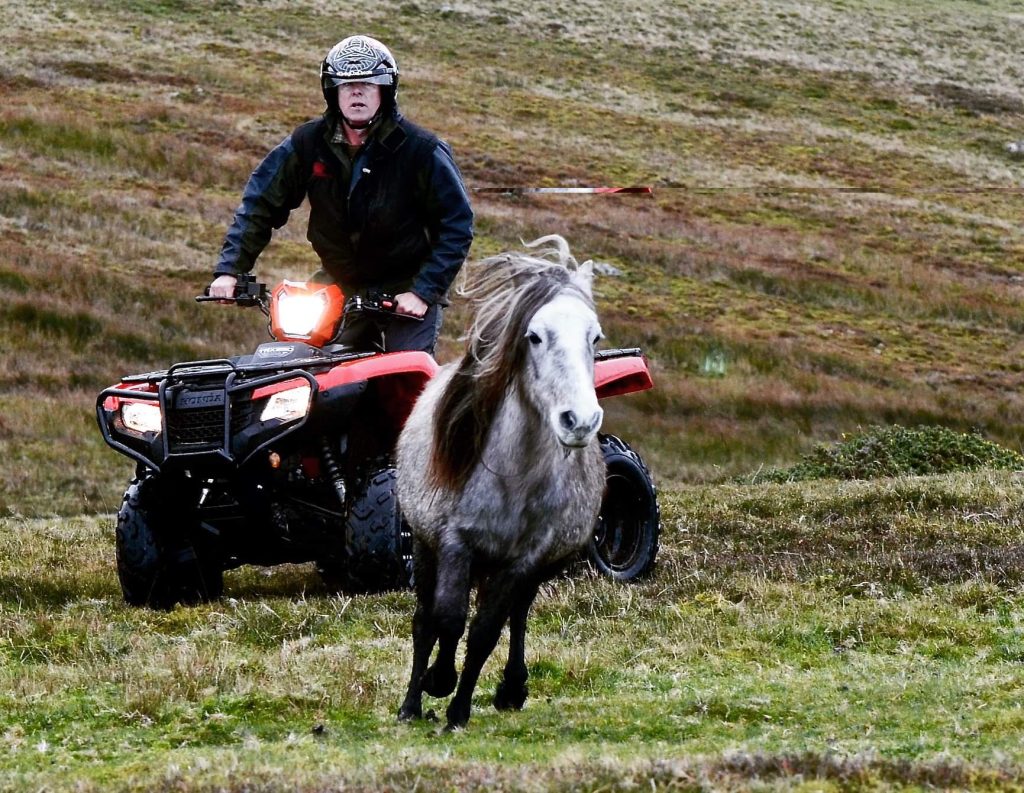
12. Have you always felt supported when learning and on the job?
I have been supported by my father and uncles while learning to farm. I have support from my farmer friends, and this has been extended through social media, networking with farmers far and wide, making connections and sharing knowledge worldwide. I feel the connected to people you are the more knowledge you accumulate.
13. What would you say to other people thinking of becoming a farmer?
If anyone wanted to become a farmer, I would encourage them to get experience working on a farm first, and then look into some sort of farm share scheme so that you could still get support and learn as you go.
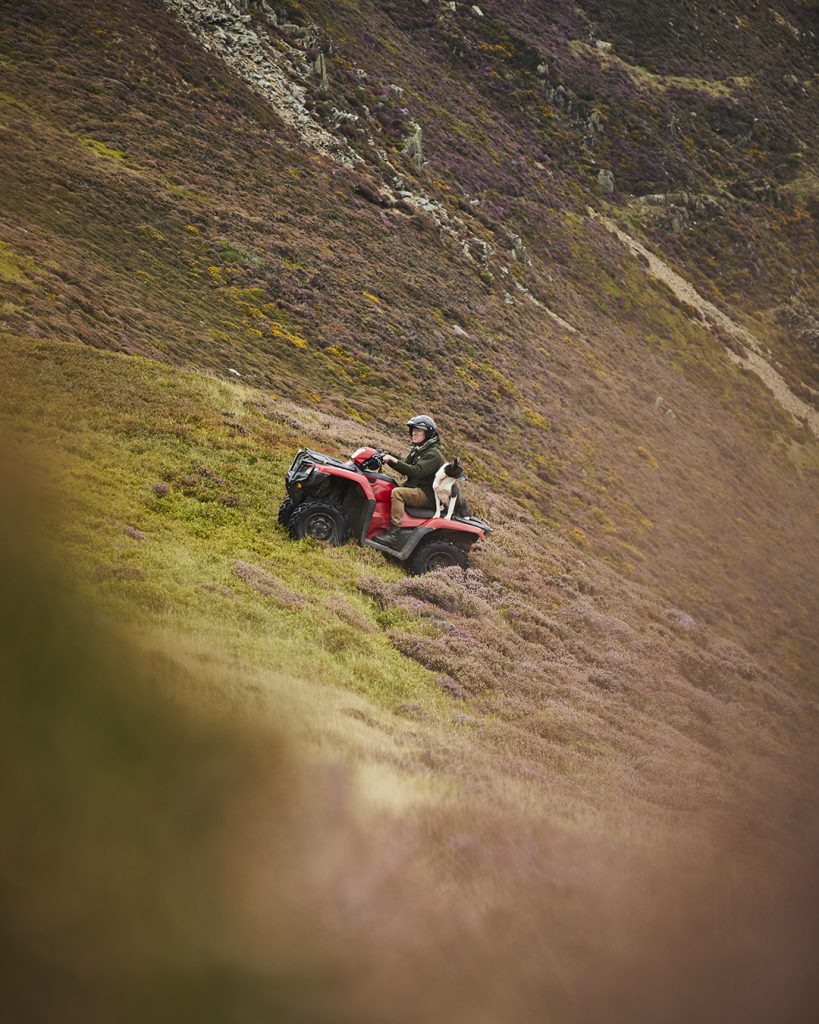
14. Can you share a memorable story or experience from your time on the farm?
I have invited many people on our farm from Rugby legends to actors and famous presenters. I have invited people from all political parties, Labour Conservatives, Plaid Cymru and Liberal Party to my home. However, the worst flack I received was when Jacob Rhys Mog came. People were vicious and horrible quite remarkable.
The visit that stands out to me is when Country File filmed Vegan v Farmer. Tim Sheiff was a vegan freer runner and a gentleman. He was invited as part of the programme to discuss our views regarding eating meat. We started in our vegetable patch, and I showed him that we need to good soil to grow our veg. He didn’t know what the big heap of dung in the corner was. This “black gold” was well rotted cow manure and is essential to feed nutrients to the soil. I also explained that there were so many creatures I had to kill on that 1/4 acre patch. Slugs, snails, caterpillars, bugs, rabbits- more than had to be killed to produce protein on our farm. He was astonished. After sharing what I did on the farm, at the end of the day’s filming on top of a mountain with the sun setting, I was allowed to ask Tim one question in front of the camera ” If he was born on this farm, would he think he’d still be a vegan?” With a tear in his eye, he said “No”. We shook hands and hugged. To me that meant a great deal. The programme wanted the meeting to be a bit controversial a bit of a “battle”, but I was humbled by Tim’s honesty. He understood what we do as farmers, and I respected Tim for that. I don’t have a problem with anyone’s diet. What I have a problem is if people choose a particular diet thinking it’s going to save the planet and are being misled. It is a misleading message. I believe strongly that if you buy local, seasonal, and sustainable you are more likely to be doing good for the environment and your health.
If you’re a farmer and you’d like to contribute in our campaign to raise awareness for the incredible work in British agriculture, please drop us a DM on Instagram – @_howdenrural



